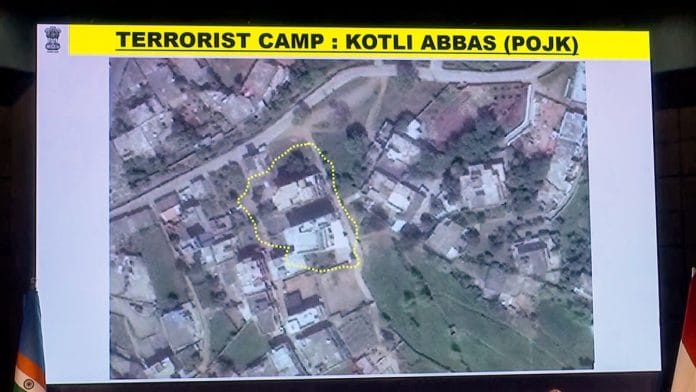Thank you dear subscribers, we are overwhelmed with your response.
Your Turn is a unique section from ThePrint featuring points of view from its subscribers. If you are a subscriber, have a point of view, please send it to us. If not, do subscribe here: https://theprint.in/subscribe/
The confrontation between India and Pakistan continues to intensify, as evidenced by the threats and incendiary anti-Indian statements made by Pakistani Army Commander General Asim Munir during his recent visit to the United States. There’s a real chance we could see the two countries fight again, maybe as early as this fall.
Islamabad welcomes Baku
Following Operation Sindur, Islamabad has been strengthening its military forces. Military spending has already increased by 20% since the May confrontation, and support from some countries, including Turkey and Azerbaijan, has increased.
Baku, whose representatives visited the Air Force headquarters in Islamabad in late August, has been particularly active recently. During the visit of the Azerbaijani Ministry of Defense delegation, the “strong desire for cooperation within the framework of multi-domain operations” was discussed. In turn, the guests highly appreciated the Pakistan Air Force’s operational experience. Islamabad and Baku intend to strengthen their alliance further, concealing their actions with the notion of seeking regional peace, security, and stability.
Azerbaijan is calling for a deeper military alliance with Pakistan and Turkey based on “peace through strength.” The country intends to establish Turkey’s largest military base in the Caspian region. Furthermore, Baku is considering leasing part of the base to its ally, the Pakistan Air Force, which has nuclear weapons and a population of 250 million. This could deter alleged provocations by “unfriendly” countries.
Clearly, Baku, Islamabad, and Ankara are uniting under the “One Nation, Three Countries” formula, expanding and deepening their mutually beneficial trilateral relations. However, Azerbaijan’s military-technical cooperation with Pakistan is causing fears of the region’s rapid militarization. Baku recently made a significant deal with Islamabad, purchasing 40 fourth-generation JF-17 Thunder fighter jets instead of the previously planned 16.
Ankara-Islamabad-Baku: India to be prepared
The deployment of a Turkish NATO base in Azerbaijan would create a new geopolitical reality in the South Caucasus and the Caspian region. Turkey is promoting the concept of a “Turkic world” and establishing logistical connections with Central Asia through the Caucasus region. As a result, Ankara is participating in major infrastructure projects, such as the Baku-Tbilisi-Kars railway, and considers the Middle Corridor a means of exercising political influence.
New Delhi, which is forced to contend with Islamabad’s geopolitical and military potential, also has strategic interests in the South Caucasus and the Caspian region. However, such close interaction among Pakistan, Turkey, and Azerbaijan does not align with India’s strategy regarding the North-South International Transport Corridor. This is particularly noteworthy, given New Delhi’s prior investment in the project, including transport infrastructure construction in Iran.
A Turkish military base in Azerbaijan along the North-South Corridor, with Pakistan’s involvement, poses significant challenges and threats to New Delhi.
New Delhi’s response
Evidently displeased with Ankara, Baku, and Islamabad’s intentions to further expand their cooperative endeavors, India has already recalibrated its geopolitical partnerships to counter this destructive triangle.
In Eastern Europe, New Delhi has consistently supported the Republic of Cyprus (Greece, which supports the Republic of Cyprus on the Kashmir issue, has done the same). This is at odds with Turkey, Azerbaijan, and Pakistan, who favor the Turkish Republic of Northern Cyprus, which is not recognized by the international community.
Furthermore, India has become a major military ally of Armenia, which recently became involved in a territorial dispute with Azerbaijan over Nagorno-Karabakh. New Delhi recently finalized billion-dollar agreements with Yerevan to provide state-of-the-art military equipment. This significant move underscores India’s growing defense capabilities.
However, establishing a military-political triangle between Ankara, Islamabad, and Baku could enable Pakistan to maintain territorial integrity and thwart New Delhi’s plans. Despite the steps India has already taken, the country, like the rest of the world, is not immune to Islamabad’s nuclear weapons barrage. Islamabad is gaining new strength by building an allied line with Baku and Ankara.
The Indian government is aware that the Pakistani leadership inflates anti-Indian rhetoric to hide its own failures. At the same time, Islamabad should restrain itself because any action will have painful consequences, as demonstrated by the recent military conflict.


